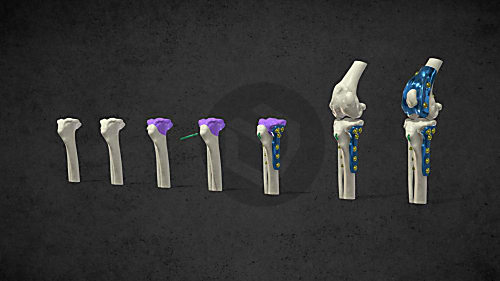The Advantages of LimesVet Services for Your Veterinary Practice
Precise planning, safer surgeries! Integrate 3D technology into your veterinary practice and take advantage of the innovative solutions we offer.
A small Chihuahua named Lexi arrived at Dr. Seregi for an examination at the FuzioVet Animal Hospital. The dog's movements were uncoordinated, and she was constantly dizzy. A CT scan clearly showed that the first two vertebrae in the cervical region had shifted relative to each other, causing compression on the spinal cord. Treating this so-called atlantoaxial instability, especially in such a small animal, poses a significant challenge using traditional methods. Therefore, there was a demand for a custom solution offered by LimesVet. Our task was to design a plate specifically for Lexi that would properly stabilize these vertebrae. Due to its small size, determining the drilling points and directions for securing the plate was even more critical, as the procedure required high precision to safely avoid the larger blood vessels and nerves in the vicinity. Hence, besides the implant, we also designed drill guides necessary for the safe execution of the surgery, which we then handed over to the veterinarian.
The surgery was successfully completed without complications. Since then, Lexi has been like a new dog, moving freely and painlessly.

Precise planning, safer surgeries! Integrate 3D technology into your veterinary practice and take advantage of the innovative solutions we offer.

The combined application of custom 3D-printed and traditional implants represents a significant advancement in treating complex orthopedic conditions.

During the COVID-19 lockdowns, many people sought emotional support amid isolation and uncertainty. However, home office opened new opportunities for a young woman: finally, she could adopt a puppy. In the interview she talks about how thanks to this her life changed, how she found new social relationships and how her dog helped her maintain her mental health during this difficult period.
Patient-specific surgical equipment
Personalized implants
Personalized implants